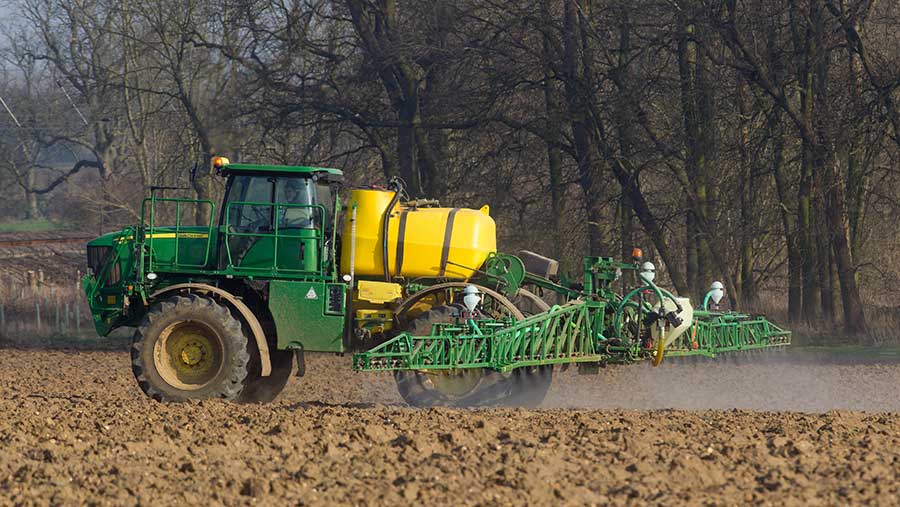France to defy EU and vote against glyphosate renewal
 © Tim Scrivener
© Tim Scrivener France is planning to defy the European Commission and vote against a proposal to renew the licence for glyphosate, according to reports.
The future of glyphosate, the active ingredient in the Monsanto weedkiller Roundup, remains uncertain after health studies have raised concerns about its safety.
But a source in France’s environment ministry told news agency Reuters that the country plans to vote against a renewal.
See also: Analysis: The glyphosate debate explained
The European Commission has proposed to renew glyphosate’s licence for a 10-year period. EU member states are set to vote on the future of glyphosate on 4 October, but French opposition could block the qualified majority needed for a renewal.
German vote
Germany will head for the polls on 24 September and the outcome of the election could go a long way to deciding the fate of this vital agrichemical in Europe.
German chancellor Angela Merkel and farm minister Christian Schmidt have backed the renewal of glyphosate’s licence.
However, in the last vote to renew the licence in June 2016, both France and Germany abstained,
The EU failed to reach a qualified majority, so the commission decided to temporarily extend glyphosate’s licence for 18 months to allow further analysis of its safety.
Green groups have been calling for an outright ban after the World Health Organization’s International Agency for Research on Cancer (IARC) suggested in March 2015 that glyphosate was “probably carcinogenic to humans”.
But Europe’s food safety watchdog, the European Food Safety Authority (Efsa), which advises EU policymakers, and the European Chemicals Agency (ECHA) have both concluded that glyphosate is safe to use.
Threat to food production
Sarah Mukherjee, chief executive of the Crop Protection Association, said: “These reported comments [from France] are at odds with the robust body of scientific evidence and the opinion of expert regulators around the world, backed by 40 years of use, which clearly demonstrate that glyphosate is safe.
“The loss of this vital tool would not only impact on the ability of farmers to provide healthy, safe and affordable food, but also have unintended environmental consequences through limiting farmers’ ability to use no-till methods.
“Glyphosate is essential and without it UK agriculture as we know it would not exist.”
The NFU says there is no regulatory reason why glyphosate’s licence should not be extended for 15 years. The union has called on farmers to lobby MPs and MEPs to make the case for glyphosate and how vital it is to farm businesses.
Essex farmer Tom Bradshaw, a member of the NFU crops board for East Anglia, said: “Glyphosate is a vital part of the farming system that delivers environmental and economic health on my farm. The idea of banning it is self-destructive European politics at its worst.”
The economic cost of a ban on glyphosate could be huge. A report by Fondation Concorde in France concluded it could cut France’s GDP by €930m (£856m).
In the UK, a study by Oxford Economics estimated it could reduce GDP by £930m and there would be a £193m loss in annual tax revenue.

